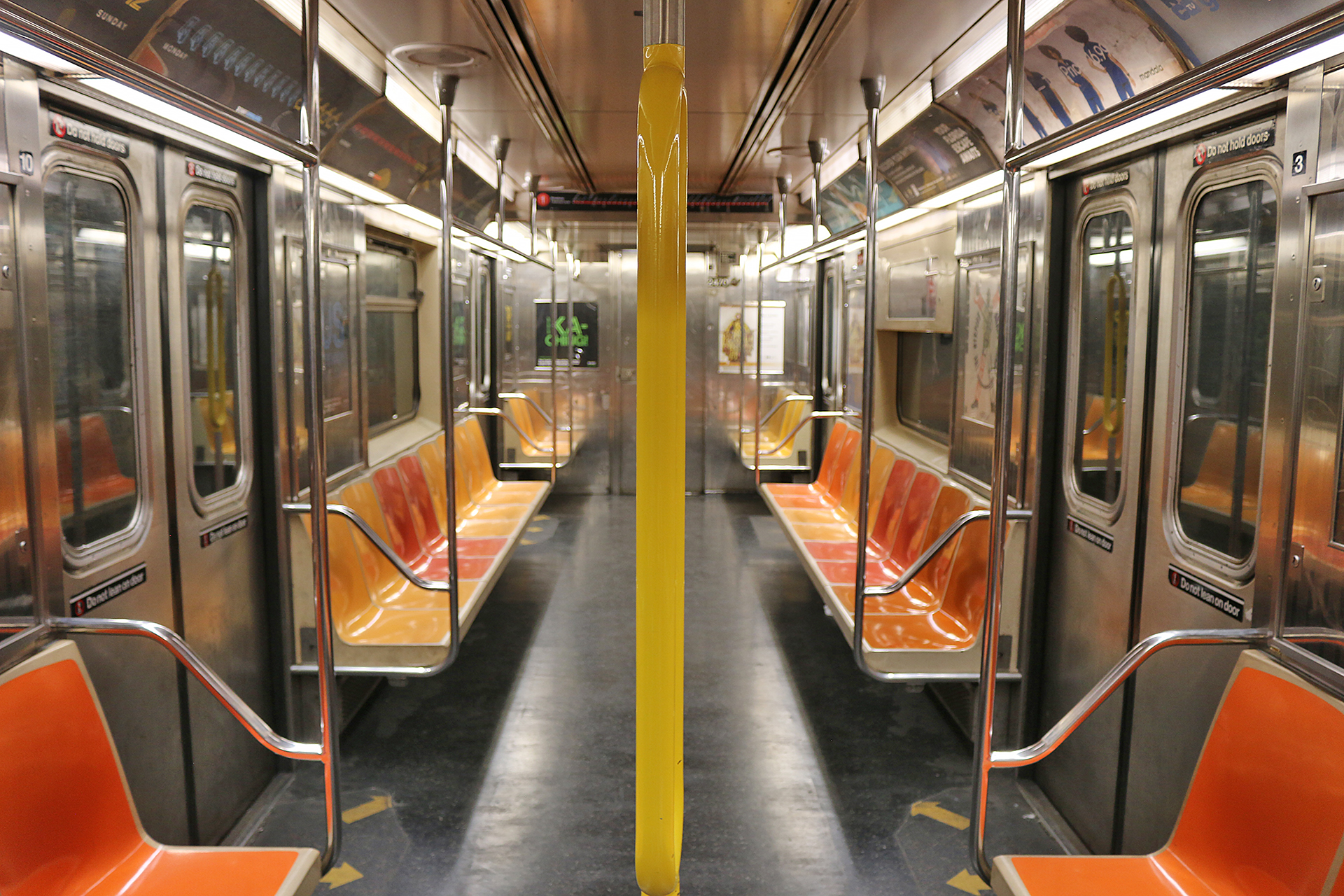Visiting New York will get even more expensive, as the proposed tolls and fares for mass transportation were approved on Tuesday, September 30, 2025 by the members of the board of the Metropolitan Transportation Authority of New York; and therefore will increase sometime in January of 2026.
Visiting New York Will Get Even More Expensive: Toll and Fare Increases Approved

The operating budget of the Metropolitan Transportation Authority for 2025 was already approved by the board of directors back in December of 2024, which assumed that an increase in fares and tolls would be in effect in March of 2025 — but the increases and changes in ticketing policies have been delayed until at least January of 2026 to be in effect in order to align them with the launch of full tap-and-go technology on subways and buses.
A slide show to justify the toll and fare increases was presented to the aforementioned members of the board on Wednesday, July 30, 2025. An updated slide show was presented on Tuesday, September 30, 2025.
The approved changes that will be implemented for fares and tolls are as follows:
- Changes to New York City Transit fares:
- The base fare for subways, local buses, and Access-A-Ride would increase 10 cents, from $2.90 to $3.00. The reduced fare would increase from $1.45 to $1.50. Learn more about the MTA Reduced-Fare program.
- The 7-day rolling fare cap would become permanent. Pay for 12 rides in a 7-day period and any additional rides are free. At the proposed base fare, no rider would pay more than $36 in a week. Reduced-fare customers would pay no more than $18 in a week.
- The express bus base fare would increase from $7.00 to $7.25. The reduced fare would increase from $3.50 to $3.60.
- Because express buses travel greater distances than local buses and use the highway network to connect neighborhoods lacking transit access to Manhattan, New York City Transit provides coach buses and charges a higher fare than local buses.
- A fare cap would be added for customers who use the express bus network. Express bus riders would never pay more than $67.00 for unlimited express bus, local bus, and subway rides in any 7-day period.
- The Single Ride ticket would increase from $3.25 to $3.50.
- The fee for a new OMNY card would increase to $2.00 when the MetroCard is no longer accepted for fare payment later in 2026. OMNY cards are more durable and last for up to five years.
- No changes are proposed to discount policies for seniors, people with disabilities, students, and the Paratransit Zero Fare.
- See proposed fare tables for New York City Transit.
- Changes to Long Island Rail Road and Metro-North Railroad fares:
- Monthly and weekly tickets would increase up to 4.5 percent across both railroads.
- Even with this increase, monthly ticket prices would remain lower than they were prior to the 2019 Novel Coronavirus pandemic and would not exceed $500.00.
- All other ticket types would increase up to eight percent.
- Peak CityTicket would increase from $7.00 to $7.25 and Off-Peak CityTicket would increase from $5.00. to $5.25. This change would also apply to the Far Rockaway ticket.
- All one-way tickets in the city zones would match CityTicket prices, so no customer would pay more than $7.25 in the peak or $5.25 in the off-peak for travel within New York City.
- Peak CityTicket and Far Rockaway Ticket would become permanent fare products.
- The surcharge for tickets purchased onboard from a conductor would increase by $2.00. There would be an equivalent surcharge for tickets purchased onboard using the TrainTime mobile software application program.
- See proposed fare tables for Long Island Rail Road.
- See proposed fare tables for Metro-North Railroad.
- Monthly and weekly tickets would increase up to 4.5 percent across both railroads.
Proposed Changes to Ticketing and Fare Policies
Fare policies on subways and buses:
- A permanent 7-day rolling fare cap
- With tap-and-go, customers ride free after paying for 12 trips in any 7-day period. This guarantees they get the best subway and bus deal available, without the burden of pre-paying.
- With fare capping available to all subway, local bus, and express bus customers, the 7-Day, 30-Day, and Express Bus Plus Unlimited Ride MetroCards will no longer be sold. Customers can still pre-load $36 for unlimited 7-day travel onto an OMNY card. Any unused funds will roll over— no more use-it-or-lose-it.
- Tap-and-go would be required for all subway, local bus, and express bus rides
- Cash and coins would continue to be accepted at card vending machines in subway stations and at one of the 2,700 local businesses that sell OMNY cards. Learn more about OMNY retail locations.
Ticketing policies on Long Island Rail Road and Metro-North Railroad
The policy changes described below simplify ticketing rules and speed up the fare-collection process. They would be adopted as a pilot program, subject to ongoing review.
- No more ticket activation
- All One-Way mobile tickets would auto-activate upon purchase, and the ticket would expire after four hours. Paper tickets would also expire four hours after purchase.
- More flexible ticket offerings
- A new Day Pass for unlimited travel would replace the Round-Trip ticket. The Day Pass would be valid on the day of purchase until 4 a.m. the following day. On weekdays, the Day Pass would cost 10% less than two one-way peak tickets; on weekends, it would cost the same as two one-way off-peak tickets. Unlimited Day Passes are also available for CityTicket and Far Rockaway ticketholders, priced at $14.50 in the peak and $10.50 in the off-peak.
- A new “pay-as-you-go” discount would be available for mobile customers. After 10 peak or off-peak trips in 14 days, mobile customers would get an 11th peak or off-peak one-way trip for free in the same 14-day period. Unlike today’s 10-Trip, which would be eliminated, this new fare product would not require customers to pre-pay for 10 tickets to receive a discount and introduces a new discount for 10-Trip peak customers.
- Reduced fare is always available
- A reduced fare product would be available all day, every day for seniors, people with disabilities, and Medicare recipients, even in the morning peak period.
- Avoid the onboard surcharge
- Customers who repeatedly purchase mobile tickets onboard would be subject to the surcharge after an escalating series of warnings.
Approved Changes to Tolls
- All toll rates would increase 7.5 percent at all facilities, which includes E-ZPass and Tolls by Mail.
- The existing toll discount programs for Queens, Bronx, and Staten Island residents would remain in effect. Learn more about Resident Rebate Programs.
- See proposed Bridges and Tunnels tolls.
A Brief History of the Congestion Pricing Program
On Tuesday, August 16, 2022, this article that was published at The Gate With Brian Cohen first reported that a congestion pricing program may be coming to the city of New York — along with a plethora of information that led to that initial proposal.
The toll rates were then revealed after members of the board of the Metropolitan Transportation Authority overwhelmingly voted to approve congestion pricing in the city of New York on the morning of Wednesday, December 6, 2023 — and the cost would initially be a minimum of $15.00 per day for passenger vehicles before the program was paused indefinitely on Thursday, June 6, 2024.
Despite the “indefinite pause”, the New York Congestion Pricing Program became effective as of Sunday, January 5, 2025 at midnight pursuant upon approval by the board of the Metropolitan Transportation Authority at its meeting on Monday, November 18, 2024. The toll was reduced to nine dollars per day for the initial implementation of the program; and the following schedule of the cost for motorists to enter the lower half of Manhattan was announced with a daytime automobile E-ZPass toll of:
- $9.00 from 2025 through 2027
- $12.00 from 2028 through 2030
- $15.00 from 2031 until further notice
Final Boarding Call
The aforementioned toll and fare increases will become effective approximately one year after the Central Business District Tolling Program of the city of New York was officially implemented.
If you are not a customer of E-ZPass in New York and you want to enter lower Manhattan, be prepared to pay $13.50 for the privilege during peak hours, according to this official toll calculator — and that does not include tolls from any river crossing, which can be as high as $12.03.
That means that simply driving into Manhattan south of either East 60 Street or West 60 Street during peak hours can cost as much as $25.53. That is outrageous, in my opinion.
Zohran Mamdani pledges to eliminate fares on buses in the city of New York if he is elected mayor. Someone has to pay for fuel, salaries, maintenance, creating priority lanes, and other costs to operate an extensive bus system. Who is going to pay those millions of dollars? Will this idea emulate the free transportation currently available in Luxembourg, which became effective as of Saturday, February 29, 2020; and the somewhat free bus system in Malta?
All photographs ©2022 by Brian Cohen.

